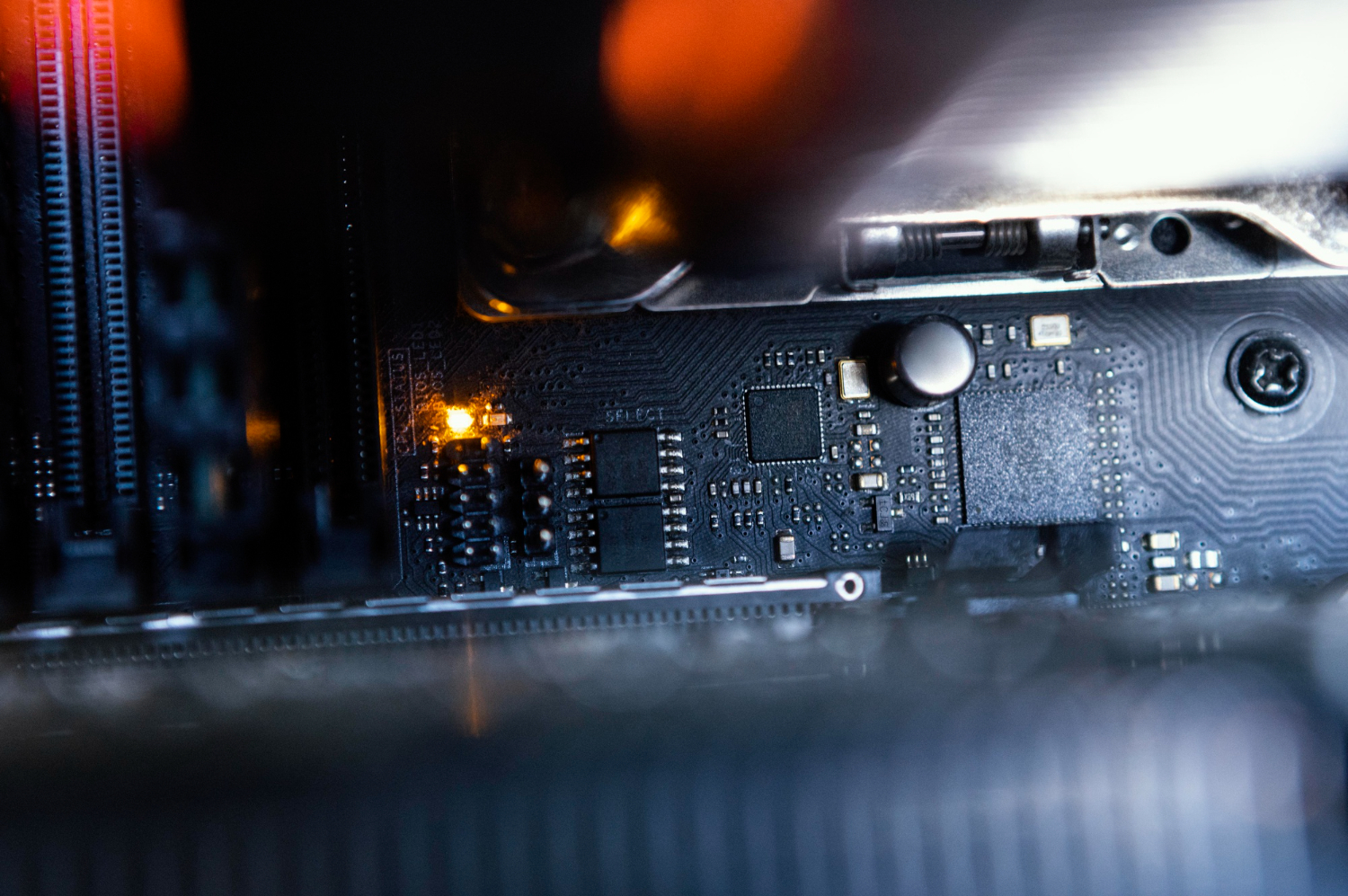Introduction
Artificial intelligence (AI) and machine learning (ML) are transforming various industries, from healthcare to finance. As these technologies evolve, the need for efficient development and deployment processes becomes crucial. This is where MLOps, a set of practices that combines machine learning, data engineering, and operations, plays a significant role.
What is MLOps?
MLOps, or Machine Learning Operations, is a practice that combines ML, data science, and IT operations to streamline the development, deployment, and maintenance of ML models. It draws inspiration from DevOps but focuses specifically on the unique requirements of ML projects. MLOps ensures that ML models are reliable, reproducible, and scalable.
The Role of MLOps in AI Application Development
Streamlining Model Training and Deployment
MLOps streamlines the process of model training and deployment. Data scientists and engineers use this technology to automate repetitive tasks such as data preprocessing, model training, and evaluation. This automation reduces errors and speeds up the development cycle.
For instance, an AI application for autonomous vehicles relies on neural networks trained on massive data sets. MLOps automates the ingestion, cleaning, and preprocessing of these data sets, making the model training process more efficient.
Ensuring Model Accuracy and Reliability
MLOps practices ensure that ML models are accurate and reliable. Continuous integration and continuous deployment (CI/CD) pipelines are integral to MLOps. These pipelines automate the testing and validation of models, ensuring that only high-quality models are deployed.
In the context of speech recognition, it ensures that models are trained on diverse and representative data sets. This improves the model’s accuracy in recognising different accents and dialects, providing a better user experience.
Facilitating Real-Time Data Integration
Real-time data integration is critical for many AI applications. MLOps enables seamless integration of real-time data streams into ML workflows. This is essential for applications such as driving cars, where real-time data from sensors must be processed instantly.
MLOps frameworks facilitate the real-time updating of models. This ensures that the models can adapt to new data quickly, maintaining their performance and accuracy over time.
Key Components of MLOps
Data Engineering
Data engineering is a core component of MLOps. It involves collecting, cleaning, and preprocessing data for model training. Efficient data engineering pipelines ensure that high-quality data is available for training ML models.
For example, in computer vision applications, data engineering processes handle large volumes of image and video data. These processes include tasks like data augmentation, which enhances the training data by generating variations of the original images.
Model Training and Validation
Model training and validation are critical steps in the ML lifecycle. MLOps automates these steps, ensuring that it trains models on the latest data and validates them against predefined metrics.
Reinforcement learning models, used in applications like game playing and robotics, benefit significantly from MLOps. The automated training and validation pipelines enable these models to learn and improve continuously.
Continuous Integration and Continuous Deployment (CI/CD)
CI/CD pipelines are essential for maintaining the quality and reliability of ML models. These pipelines automate the testing, validation, and deployment of models, ensuring that only the best-performing models are released.
In AI customer service apps, CI/CD pipelines keep chatbots running with the latest models. This enhances the user experience by providing accurate and timely responses.
Benefits of MLOps
Improved Collaboration
MLOps fosters improved collaboration between data scientists, software engineers, and operations teams. By standardising workflows and automating repetitive tasks, it allows teams to focus on higher-level tasks.
This collaborative approach is particularly beneficial in complex projects such as developing AI systems for healthcare. It ensures that all stakeholders, from data scientists to healthcare professionals, align and work towards the same goals.
Scalability
MLOps frameworks are designed to handle the scalability requirements of ML projects. They can manage the increasing volumes of data and the computational demands of training large models.
In the financial sector, for example, AI models are used for fraud detection. These models need to process and analyse vast amounts of transaction data in real time. This technology ensures that these models can scale to meet the demands of real-time fraud detection.
Enhanced Model Monitoring and Maintenance
MLOps provides tools and practices for monitoring and maintaining ML models in production. Continuous monitoring ensures that models perform as expected and can detect any drifts in performance.
For example, in predictive maintenance applications for manufacturing, continuous monitoring of ML models ensures that operators detect any anomalies in machinery early. This helps in preventing costly breakdowns and improving operational efficiency.
Real-World Applications in AI Development
Autonomous Vehicles
Self-driving cars use AI and machine learning to detect objects, plan routes, and make decisions. MLOps frameworks ensure that these models are trained on high-quality data and can be updated in real time.
The integration of computer vision and reinforcement learning models in autonomous vehicles is made seamless by MLOps. This ensures that the vehicles can navigate complex environments safely and efficiently.
Healthcare
In healthcare, AI applications such as diagnostic imaging and personalised medicine benefit from MLOps. The frameworks ensure that models are trained on diverse and representative data sets, improving their accuracy and reliability.
For example, AI systems used for diagnosing diseases from medical images rely on computer vision algorithms. It ensures that these algorithms are continuously updated with new data, improving their diagnostic accuracy over time.
Retail
In the retail sector, AI applications such as customer recommendation systems and demand forecasting benefit from MLOps. These systems rely on accurate and up-to-date models to provide personalised recommendations and optimise inventory management.
MLOps frameworks ensure that these models are trained on the latest customer data and validated against performance metrics. This enhances the accuracy of recommendations and improves the overall customer experience.
Challenges in Implementing MLOps
Data Privacy and Security
Implementing MLOps involves handling large volumes of data, which raises concerns about data privacy and security. Ensuring that data is stored and processed securely is crucial for maintaining customer trust.
In applications such as speech recognition, where personal data is involved, MLOps frameworks need to implement robust security measures. This includes encryption, access controls, and regular security audits.
Managing Complexity
MLOps involves integrating multiple tools and technologies, which can be complex to manage. Ensuring that all components work together seamlessly requires careful planning and coordination.
In AI projects with computer vision, data scientists use image recognition algorithms, data tools, and model training frameworks. MLOps provides a structured approach to managing this complexity.
Keeping Up with Technological Advancements
The field of AI and ML is rapidly evolving, with new algorithms, frameworks, and tools being developed continuously. Keeping up with these advancements and integrating them into existing workflows can be challenging.
MLOps frameworks need to be flexible and adaptable to incorporate new technologies. This ensures that AI applications remain cutting-edge and can leverage the latest advancements in the field.
How TechnoLynx Can Help
TechnoLynx specialises in AI and MLOps consulting services. We help organisations implement MLOps frameworks to streamline their AI application development processes. Our services include:
- MLOps Consulting: We provide expert advice on implementing MLOps practices tailored to your specific needs. Our consultants have extensive experience in AI and ML projects across various industries.
- Custom MLOps Solutions: We develop custom MLOps solutions that integrate seamlessly with your existing workflows. Our solutions are designed to be scalable, secure, and adaptable to future advancements.
- Training and Support: TechnoLynx provides thorough training and support to help your team effectively use MLOps tools and practices. Our support services include ongoing maintenance and monitoring to keep your ML models performing at their best.
Conclusion
MLOps plays a crucial role in the development and deployment of AI applications. By streamlining model training, ensuring model accuracy, and facilitating real-time data integration, MLOps enhances the efficiency and reliability of AI projects. It also fosters collaboration, scalability, and continuous monitoring, making it an essential practice for modern AI development.
At TechnoLynx, we are committed to helping you implement MLOps frameworks that meet your specific needs. Our engineers are talented experts in AI and MLOps consulting. We provide custom solutions to improve your AI capabilities. Contact us today to learn more about how we can support your AI projects and help you achieve your business goals.
Follow our blog to stay updated with the latest trends and insights in AI and MLOps. TechnoLynx dedicates itself to providing valuable information that helps you stay informed and ahead of your industry. Visit our blog regularly for updates on AI, MLOps, and more. Join our community of professionals leveraging cutting-edge AI solutions to transform their businesses.
Image by Freepik













